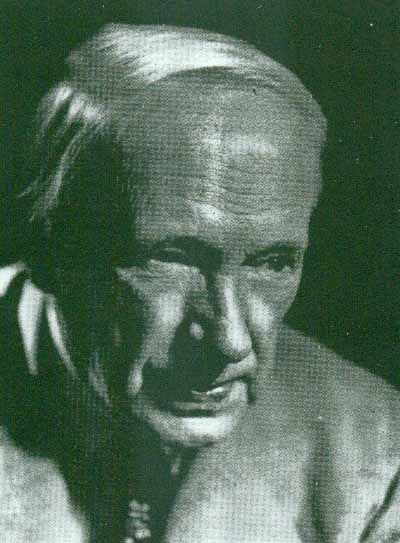Great Throughts Treasury
This site is dedicated to the memory of Dr. Alan William Smolowe who gave birth to the creation of this database.

G. E. Moore, fully George Edward Moore
English Philosopher, one of the founders of the Analytic Tradition in Philosophy
"The value of the whole must not be assumed to be the same as the sum of the value of the parts."
"Faith goes out through the window when beauty comes in at the door. "
"Theology is the finding of bad reasons for things we are going to believe anyway."
"The assertion ‘I am morally bound to perform this action’ is identical with the assertion ‘This action will produce the greatest amount of good in the Universe’."
"A great artist is always before his time or behind it. "
"All moral laws are merely statements that certain kinds of actions will have good effects. "
"By far the most valuable things, which we know or can imagine, are certain states of consciousness, which may roughly be described as the pleasures of human intercourse and the enjoyment of beautiful objects. No one, probably, who has asked himself the question, has ever doubted that personal affection and the appreciation of what is beautiful in Art of Nature, are good in themselves; nor, if we consider strictly what things are worth having purely for their own sakes, does it appear probable that any one will think that anything else has nearly so much value as the things which are included under these two heads."
"It does not matter how badly you paint so long as you don't paint badly like other people."
"The hours I spend with you I look upon as sort of a perfumed garden, a dim twilight, and a fountain singing to it. You and you alone make me feel that I am alive. Other men it is said have seen angels, but I have seen thee and thou art enough."
"Ethics is undoubtedly concerned with the question what good conduct is; but, being concerned with this, it obviously does not start at the beginning, unless it is prepared to tell us what is good as well as what is conduct. For good conduct is a complex notion: all conduct is not good; for some is certainly bad and some may be indifferent. And on the other hand, other things, beside conduct, may be good; and if they are so, then, good denotes some property, that is common to them and conduct; and if we examine good conduct alone of all good things, then we shall be in danger of mistaking for this property, some property which is not shared by those other things: and thus we shall have made a mistake about Ethics even in this limited sense; for we shall not know what good conduct really is. This is a mistake which many writers have actually made, from limiting their enquiry to conduct. And hence I shall try to avoid it by considering first what is good in general; hoping, that if we can arrive at any certainty about this, it will be much easier to settle the question of good conduct; for we all know pretty well what conduct is. This, then, is our first question: What is good? and What is bad? and to the discussion of this question (or these questions) I give the name Ethics, since that science must, at all events, include it"
"I can prove now, for instance, that two human hands exist. How? By holding up my two hands, and saying, as I make a certain gesture with the right hand, "Here is one hand," and adding, as I make a certain gesture with the left, "and here is another." And if, by doing this, I have proved ipso facto the existence of external things, you will all see that I can also do it now in numbers of other ways: there is no need to multiply examples."
"It is raining but I do not believe that it is."
"The lot of critics is to be remembered by what they failed to understand."